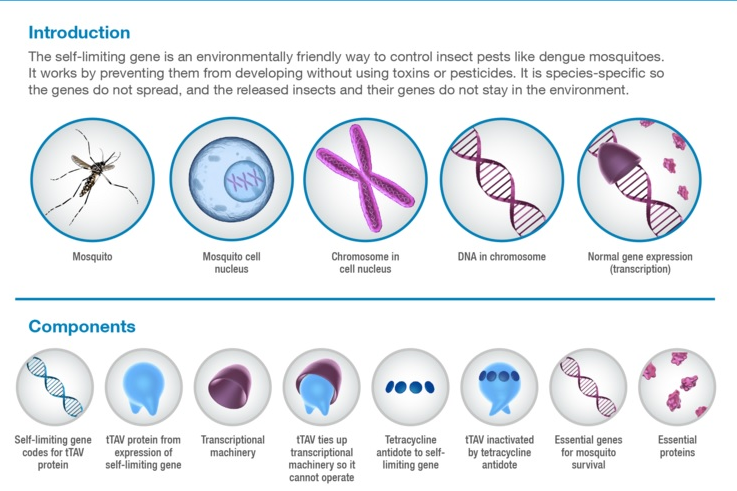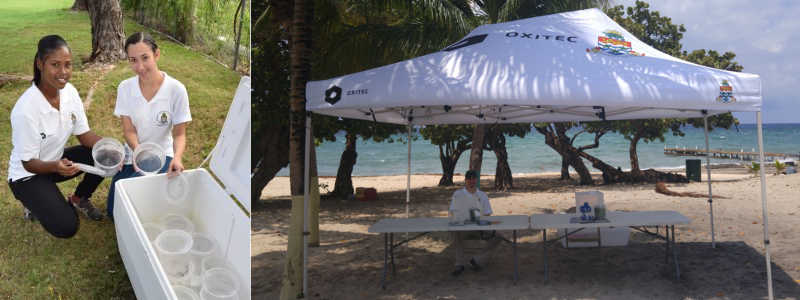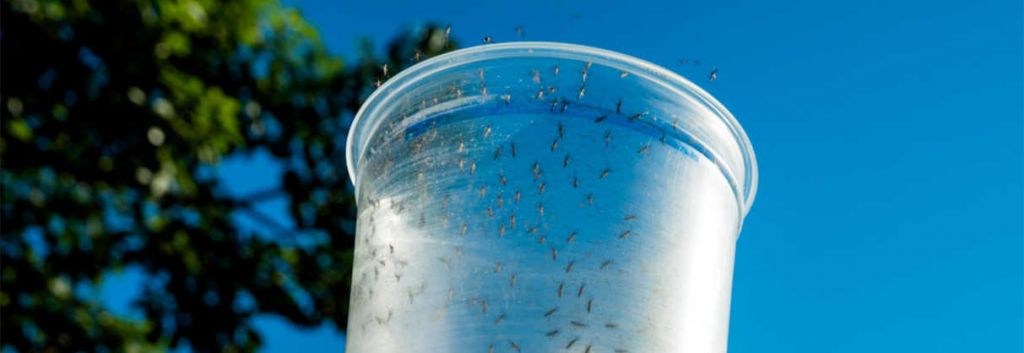A court finally allowed the release of Oxitec‘s ‘friendly’ mosquitoes in the Grand Cayman (1 of the 3 islands). If the technique repeats its recent successes, the local population of Zika-transmitting species could decrease by 90%.
 Located in the tropics, the Cayman Islands are one of the territories at risk of the spread of Aedes aegypti mosquito. This species transmits infectious diseases like dengue, chikungunya and the emergent threat of the Zika virus.
Located in the tropics, the Cayman Islands are one of the territories at risk of the spread of Aedes aegypti mosquito. This species transmits infectious diseases like dengue, chikungunya and the emergent threat of the Zika virus.
So far, only three imported cases of Zika were detected in the Grand Cayman, which is the biggest and only island affected with the invasive Aedes aegypti mosquito.
However, the risk has served as a backdrop for a new strategy to contain mosquito-borne diseases – genetically-engineered strains that self-limit the mosquitoes’ population. The UK Biotech Oxitec is leading these developments with its ‘Friendly Aedes aegypti’.

The release of Oxitec’s GM mosquitoes in the Grand Cayman started last week, after a short delay due to legal action by an objector to the initiative. In the end, a court allowed the program to continue. Around 10,000 genetically-engineered mosquitoes will be released three times a week in the West Bay area.
Initial field trials had already taken place in the Grand Cayman back in 2009, along with Brazil and Panama. In these test releases, it reduced the Aedes aegypti population by more than 90%.
The Cayman Islands Mosquito Research and Control Unit (MRCU) is implementing this new large-scale release. It will integrate its existing control methods to stop mosquito-borne infectious diseases, such as insecticides – another front in the Zika fight.

The program will last around 9 months. With the proper regulatory approvals, the release of GM mosquitoes could extend to other areas of the island.
Despite some controversy around GMO, the WHO recommends Oxitec’s strategy as a tool to fight Zika. It also has the support of government agencies in different countries. Examples are an FDA authorization for a trial in Florida and the deployment in an area of 60,000 people in Brazil – with hugely impressive results so far.
A TED talk explaining self-limiting GM Mosquitoes…
Feature Image Credit: Oxitec





